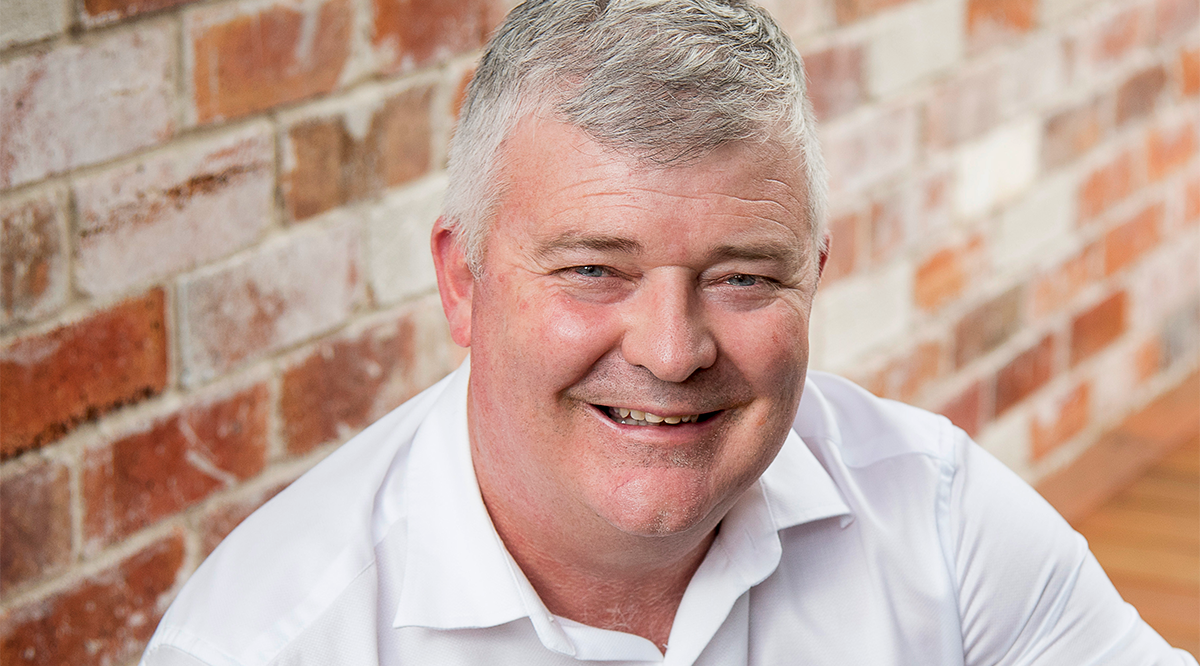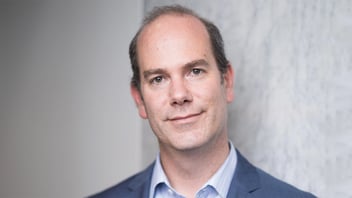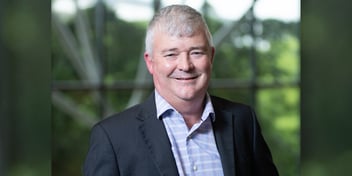President's Message - Learnings from Ozwater with Peter Dennis

Peter Dennis, President of the Australian Water Association reflects on this year's Ozwater by outlining the need for reinventing planning and storytelling.
I love Ozwater! Each year, there is always an underlying conversation or exciting new themes that emerge, and two key themes resonated for me.
- Indigenous thinking is becoming a vibrant and important part of our industry.
While we have a long way to go, there is a good foundation. The opportunity of working together and bringing traditional learnings together with contemporary science is exciting. The Australian Water Association last year launched the Reconciliation Action Plan (RAP) and we continue to work together with Reconciliation Australia, First Nations communities and Indigenous speakers and water professionals. - The Imperative for action on climate change is now!
The theme for Ozwater'24 'Accelerating Action' is a rally cry to our community addressing the vital role water must play in the climate crisis.
At the Water Leaders Forum during Ozwater'23, Professor Cynthia Mitchell AO relayed her call to action on climate that really made us feel uncomfortable about where we were at on the journey. The conversation for accelerated action certainly built on this at Ozwater'24.
Also at the same Water Leaders Forum, Grant King (Chair, Sydney Water) invited delegates to use their imagination and creativity to meet hard targets.
“Meeting the 2050 target is not a problem of execution – 2050 is a problem of imagination – we do not yet have what we need to hit net zero by 2050 – we have to think more creatively – we have to invent a world that today would seem inconceivable.” said Grant.
It is the decade of water and it's this decade which will make a difference for many generations to come. There is an intersection of multiple unprecedented challenges, a time like no other.
These challenges and opportunities include:
- Walking together, listening, and learning about water with our First Nations people.
- Tackling the skills shortage, we have in our industry at all levels.
- Understanding and delivering water resilience in the context of a greater historical climate variability than we ever understood.
- The unsolved water challenges faced by our regional, remote, and Indigenous communities.
- Meeting community expectations for more sustainable and liveable cities and waterways.
- Supporting regulators adapt to a faster changing world.
- Supporting our utilities move beyond net zero commitments towards restorative and regenerative change.
We have to achieve all this with affordability of customers front of mind – almost an unsolvable problem.
The COP28 climate conference in the UAE, was the first time in the history of COP summits where the need to shift away from every type of fossil fuel was confirmed. This triggers the largest recapitalisation of our society that we have seen in many generations and requires a different mindset.
There’s a sense of urgency and this urgency brings added responsibility. It’s too late to make mistakes. Every decision counts now. Which means every decision needs to be the right one. In the wise words of Professor Cynthia Mitchel AO "We must go slow to go fast".
With this context, I want to share key reflections related to our challenges ahead. I took the opportunity to test my AI digital image creation skills for the first time. I hope you see my efforts as pioneering for us Gen X ‘s. When I went to university, we were still using cards to program computers.
1. Imagination and storytelling
 From COP28 thinking emerged around imagination and storytelling. Our challenge requires communicating with communities big and small and that requires storytelling.
From COP28 thinking emerged around imagination and storytelling. Our challenge requires communicating with communities big and small and that requires storytelling.
As Grant King said last year our journey ahead is a problem of imagination. This is an area that Professor Denise Baden (University of Southampton) and Rachael Treize both understand.
They advocate that we need to better understand the psychology of change needed for communities and to focus on what can do to give people positive energy and inspiration rather than focus on what we're not doing.
Rachael Treize is a storyteller. She says that if we are to build a future fit for the next generation, we must have a positive vision of what it looks like.
Before we can build the resilient zero carbon economy that we have promised future generations, we must first imagine it. We make sense of our world, not through data, but through stories. Positive storytelling of a better world is a critical part of bringing all of our communities along with us on the journey.
We need to craft our messages in a way that people can relate to and that’s a challenge in itself. The water industry has developed a position of trust over many years and this creates a foundation to be the storytellers of our future.
So we must ask ourselves, how do we best use this valued and respected position to influence required change? We need think how we move into the realm of imagination and story telling to influence and motivate our communities. Storytelling is not new, Indigenous Australian’s have been doing this for thousands of years before us.
2. Being connected
 Continuing the theme from the recent AWA’s “Connected by Water” conference in Perth which brought together various stakeholders and industries that rely on water, being connected remains pivotal for sustainable solutions.
Continuing the theme from the recent AWA’s “Connected by Water” conference in Perth which brought together various stakeholders and industries that rely on water, being connected remains pivotal for sustainable solutions.
How we approach this massive recapitalisation of our society needs a different mindset. One where we can no longer work in isolation as an industry.
We need to be better connected with our city planners and city leaders, our energy providers, our financiers, our architects and especially our regulators.
Take the collaboration between English water company Anglian Water and farmer Oasthouse Ventures as an example. Anglian Water and Oasthouse Ventures have embarked upon a project that uses low grade waste heat from treated effluent, to heat two of the UK’s largest greenhouses.
These greenhouses can produce up to 12% of the United Kingdom's tomatoes. The project has been lauded as a blueprint for sustainable, low carbon food production to meet the challenge of delivering net zero. It’s also a great example of the transition from a linear to circular economy. The cooler effluent also has substantial ecological benefit to the local receiving environment.
As an industry, we must adopt and promote regenerative and nature-based solutions. That means not settling for business as usual, and not just settling for policies and programs that just mitigate the environmental impacts of our current way of life.
It means thinking holistically and on a systemic-level, shifting our thinking from reducing impact to restorative and ultimately regenerative outcomes. This is our nature positive journey and as a sector we need to lead the way.
It means thinking of ways for human and natural systems to co-evolve together. We’ve had a culture of subjugation - think nature, our Indigenous people, women, minority groups, etc. What would it mean for us to flip things and seek to be inspired by how nature goes about things.
3. Reinventing planning
 Water is complex. We must ask ourselves, how can we approach our challenges and recapitalisation of our cities and regions? How can we make sure it's integrated into everything we do?
Water is complex. We must ask ourselves, how can we approach our challenges and recapitalisation of our cities and regions? How can we make sure it's integrated into everything we do?
Some reflections for me on the current state of our planning efforts:
- It's all too common for:
- Projects not to be sufficiently scoped.
- All the risks of projects to not be fully understood.
- Projects are not properly operationalised or decarbonised.
- Insufficient time spent for stakeholder and community engagement.
- Decision making frameworks to be insufficient when dealing with the complexities of modern planning.
- Regulatory delays.
- We still have outdated planning policies that are not future fit. We can do much better.
- Our industry standards are not “game ready” for our decarbonisation and nature positive journeys ahead.
- Funding for planning is often constrained by operating cost constraints as part of economic regulation. There is a clear business case for increased investment in planning.
Several of the items in this list speak to a way of thinking that works well when things are knowable, and fails when things are not such as in complex situations.
It’s all about our starting point for designing new paths - this is where the systemic orientation is central because it starts from the point of, like our keynote Gina Chick said, not assuming we know the right answer.
There is an imperative and a great opportunity to reinvent the way we plan around water. A planning approach that cocreates with other sectors that understands our cities as ecosystems, so we understand the full context of our investments.
We need to be looking at how energy, water and nutrients optimally support our fast-growing cities and regional communities. We need decision making frameworks that don’t deal with carbon and nature positive as simple tick boxes but are part of the solution.
We often take the path of least resistance, but we need our solutions to be holistic and encompass service requirements together with decarbonisation and regenerative ecological outcomes. It is much easier to get approval for a desalination plan than for purified recycled water despite the material carbon impact and nature benefits.
We need a reinvented planning approach that looks ahead to investing in the right local science and takes our regulators and local Indigenous partners on the journey to water sustainability.
We are all about long term assets so why aren't we taking advantage of this? We need to build our long-term assets at a time of our choosing (better labour markets, no accelerated timeframe – not in the middle of drought). We need a 20-year outlook for these major decisions and importantly, we need to lead the way in urban water policy planning that is right for our specific region.
There is a compelling business case to increase our investment in planning and make sure we have our greatest minds in the space. We cannot afford to make to many wrong decisions any more. If we do we need to learn fast. Remember purple pipe which was built in in the name of circular economy? In many areas, purple pipe is now a stranded asset.
We need to reinvent the way we plan and make sure we are match fit for the critical decade ahead.
Harness our youth - build the strength of our team
One of our greatest assets for this journey is our Young Water Professionals (YWP's).
Chelsea Hayward, our 2023 YWP of the year spoke at AWA’s Connected by Water conference in February and the message was clear:
- The next generation very much have skin in the game and want to be involved and have a seat at the table.
- They have the skillsets that enable faster transition to future fit approaches like AI.
So, we should make sure they’re involved and have a seat at the table.
Next steps
There is a lot that excites and inspires me. I hope you were also similarly inspired by Ozwater'24 and have had a chance to reflect and make plans to Accelerate Action in your business. We share a grassroots desire to make a more sustainable future. We are becoming more inclusive and collaborative with how we are working and willing to help our neighbours including the Pacific, Southeast Asia and remote communities here in Australia.
Our YWP's exude talent, energy and have a different mindset than previous generations before them. They are influencing and having more impact than ever before.
The challenges we face are large and there is an urgency to act. Our vision of Connect, Share and Inspire is now more important than ever. We need to collaborate more across sectors for solutions. We can be city shapers by working energy providers, city planners, regulators and government policy makers for great change.
The AWA provides an important canvas for this collaboration. We need to amplify the Voice of Water.
I very much look forward to working with you all to create a more sustainable water future that supports our long-term planetary health.
I feel very privileged to be your President. See you throughout the year and I hope to see you at Ozwater'25 in Adelaide next year.



